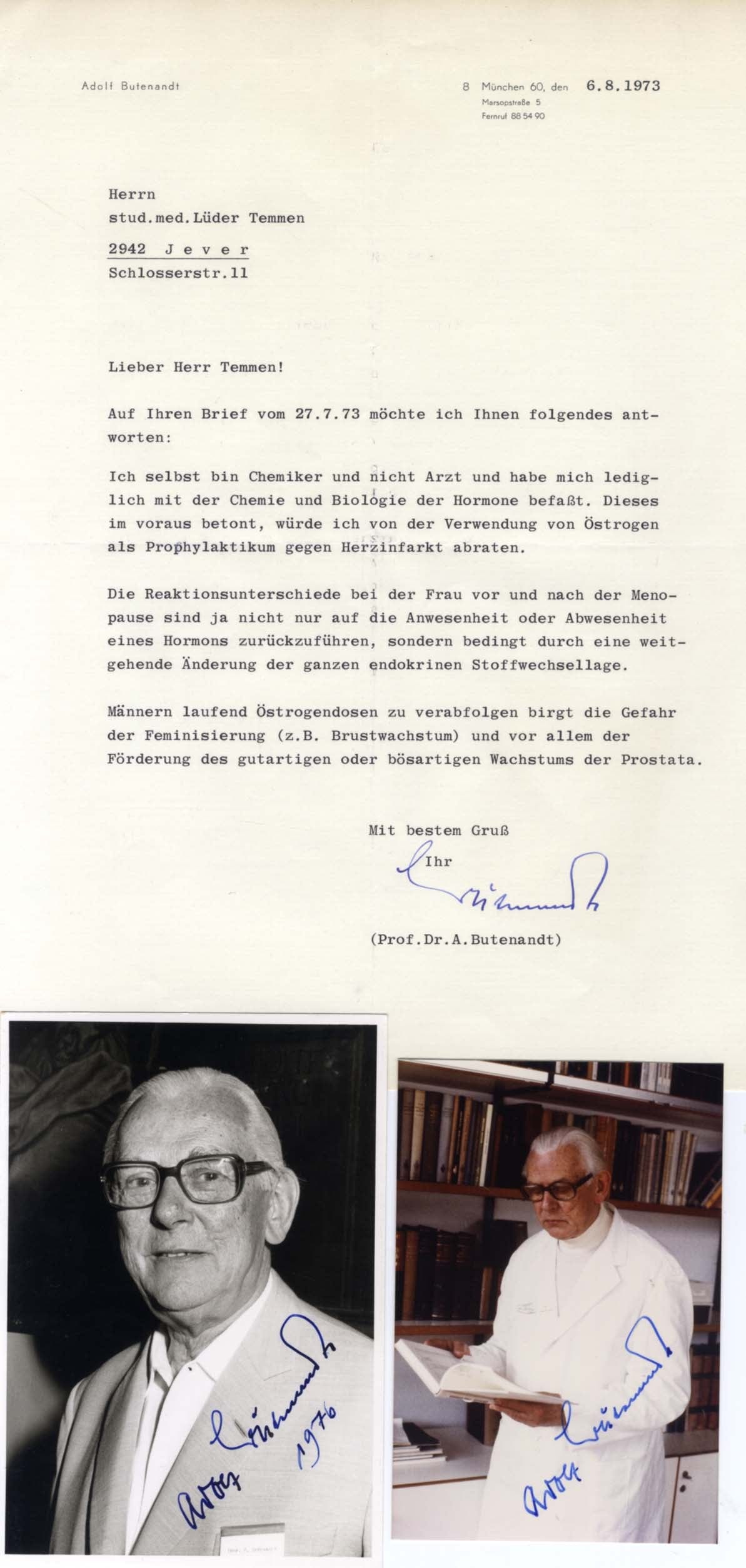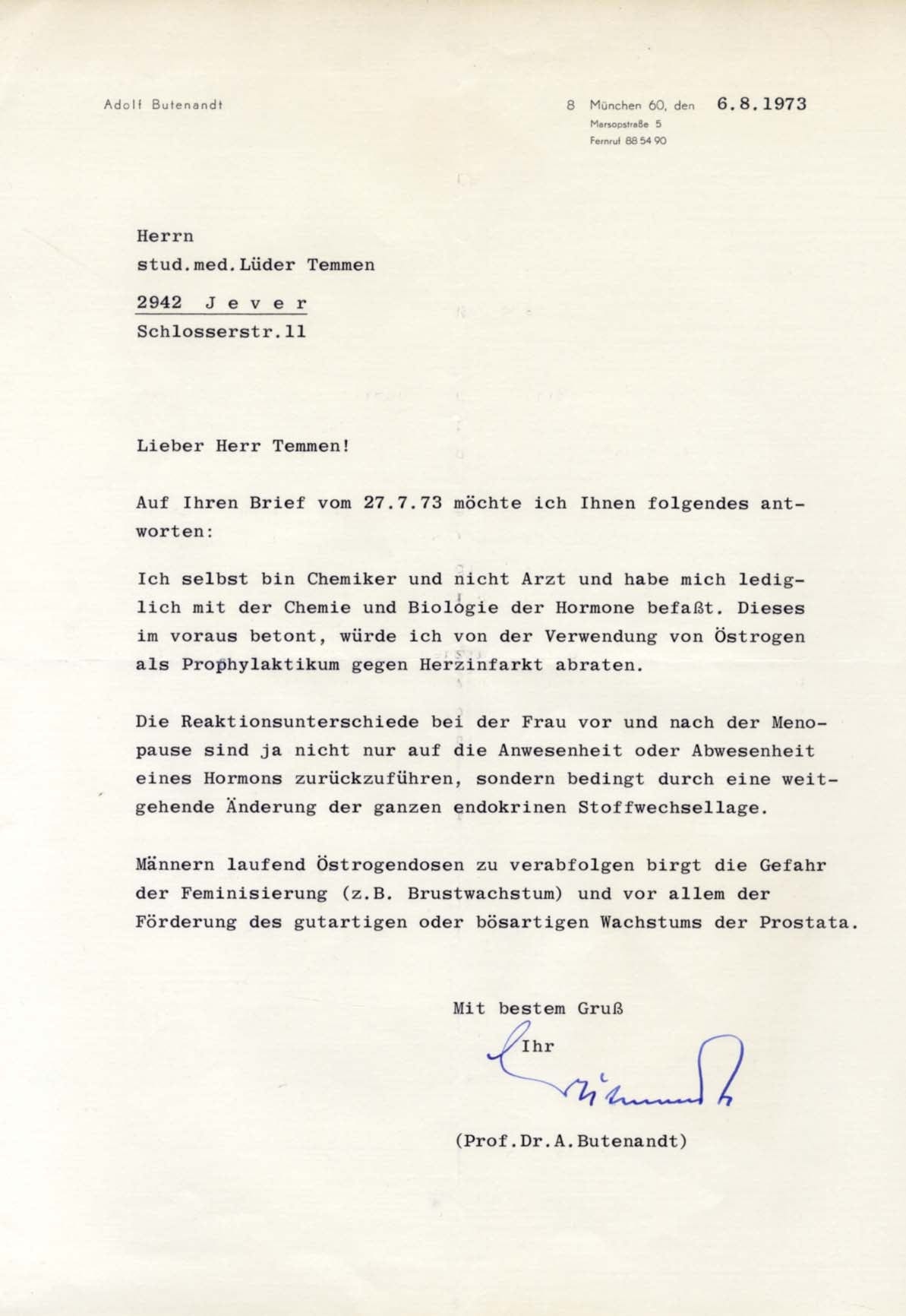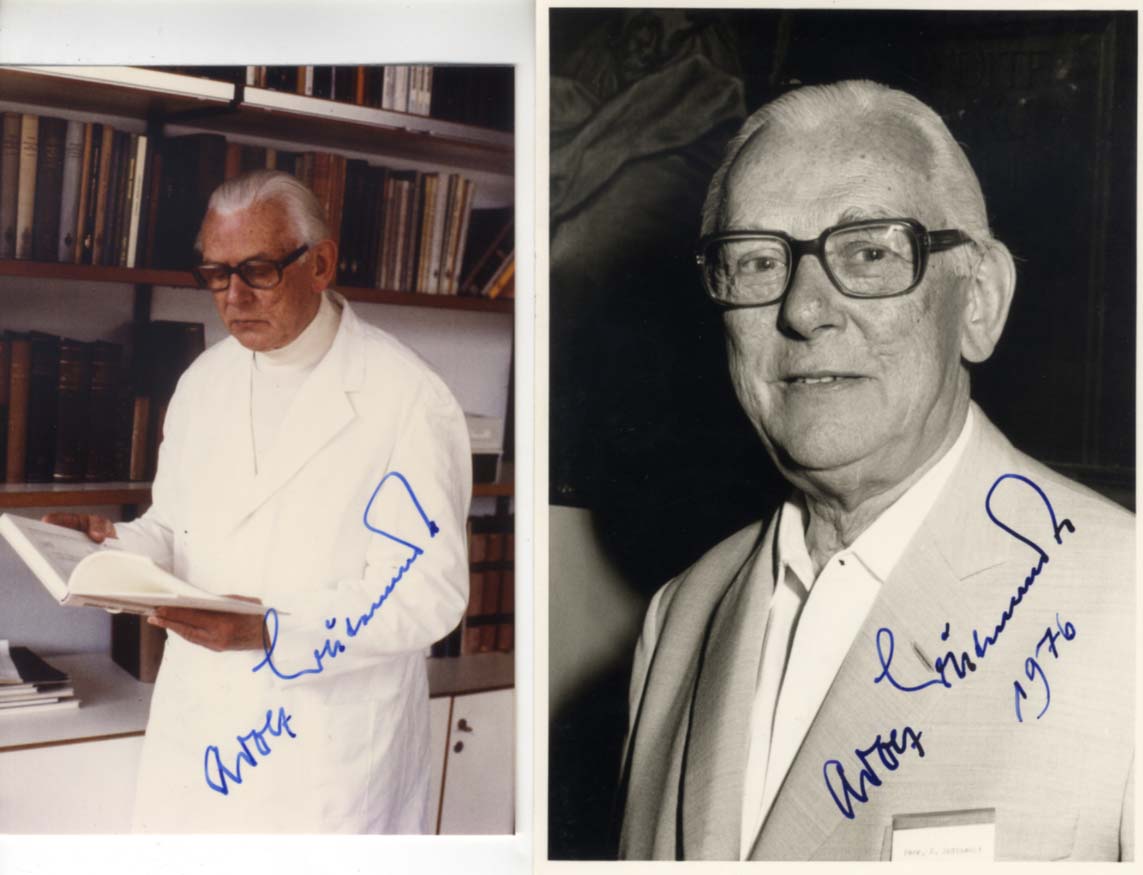Beschreibung
Maschinengeschriebener Brief mit eigenhändiger Unterschrift, eine Seite, 8,25 x 11,5 inch, persönlicher Briefbogen, München, 6.08.1973, in German, Antwortschreiben an Herrn Temmen - die Verwendung von Östrogen als Prophylaktikum gegen Herzinfarkte betreffend, signiert in blauer Tinte, mit sich überschneidenden Brieffalten - in gutem bis sehr gutem Zustand. Beiliegend zwei Photographien von Adolf Butenandt mit eigenhändigen Unterschriften, jeweils ca. 3,75 x 5,5 inch, jeweils signiert in blauer Tinte, in sehr gutem Zustand.
In Ausschnitten:
"[...] Ich selbst bin Chemiker und nicht Arzt und habe mich lediglich mit der Chemie und Biologie der Hormone befaßt. Dieses im voraus betont, würde ich von der Verwendung von Östrogen als Prophylaktikum gegen Herzinfarkt abraten..
Die Reaktionsunterschiede bei der Frau vor und nach der Menopause sind ja nicht nur auf die Anwesenheit oder Abwesenheit eines Hormons zurückzuführen, sondern bedingt durch eine weitgehende Änderung der ganzen endokrinen Stoffwechsellage. [...]"
Weitere Infos zur Person
Profession:
(1903 - 1995) Deutscher Biochemiker, Nobelpreis für Chemie 1939
Year of Birth: 1903
Echtheitszertifikat
Zahlung & Sicherheit
Deine Zahlungsinformationen werden sicher verarbeitet. Wir speichern keine Kreditkartendaten und haben auch keinen Zugang zu deinen Kreditkartendaten.



